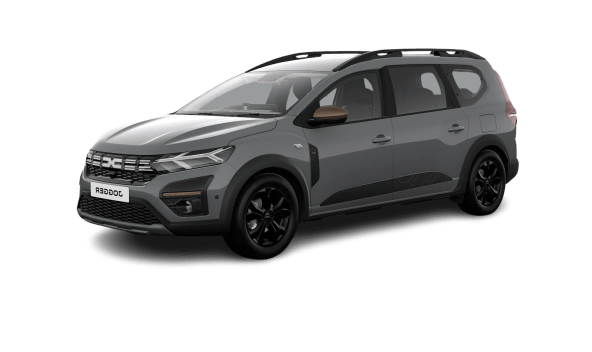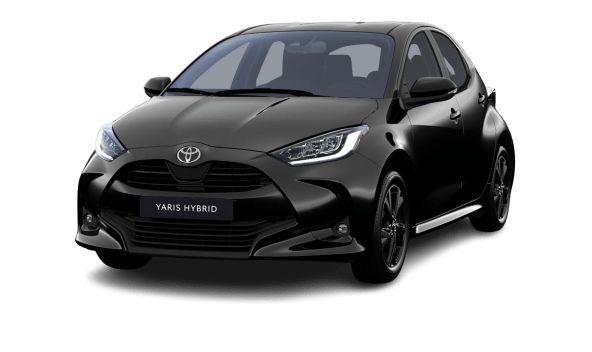Why You Should Never Pay Cash for a Car
Buying a car with cash provides several benefits, but it may not be the smartest financial move. Learn more about why you should never pay cash for a car.
Read time
8 minutes
Date
01.10.2024
Share

Key takeaways
- Your decision to pay cash for a car largely depends on your financial goals.
- However, there are pros and cons. Paying cash eliminates interest and loan applications but can limit investment opportunities and credit building and offers fewer discounts.
- Still can’t decide? Consider a car subscription from FINN for a chance to drive a car for six or 12 months with insurance, maintenance, and roadside assistance included in your monthly fee.
Saving up enough money to pay cash for a car may seem impossible or a privilege reserved for the 1%. However, if you’ve recently received a windfall, you may face the decision of financing a car or purchasing it outright with cash. With such financial power at your fingertips, it’s worth the time to consider your options. Exploring why you should never pay cash for a car can help you decide based on individual circumstances, not necessarily what the experts advise.
If you’d rather not face the decision of financing or purchasing a car with cash, consider giving yourself more time with a car subscription. A FINN car subscription offers terms for several makes and models, from pickups and electric vehicles to premium sedans and SUVs. FINN’s flexible subscription terms feature a monthly payment that includes registration, insurance, depreciation, and maintenance for a worry-free car ownership experience.
Find your car
Should you buy a car with cash?
Ultimately, paying cash for a car depends on your financial goals and what you deem to be the best use of your available funds. If you’ve narrowed your options to a particular vehicle make and model, it comes down to how you want to structure your potential loan payments and emergency funds over the next several years. Much of the decision to pay for a car with cash relies on what loan terms you qualify for with your current credit score.
Pros and cons of buying a car with cash
One of the best ways to determine if you should buy a car with cash or finance the purchase and pay interest is by listing the advantages and disadvantages of either option. Laying out the specifics on paper can help you understand what’s at stake and the best way to manage your assets. Below are the pros and cons of buying a new or used car with cash:
One of the best ways to determine if you should buy a car with cash or finance the purchase is by listing the advantages and disadvantages of either option. Laying out the specifics on paper can help you understand what’s at stake and the best way to manage your assets. Below are the pros and cons of buying a car with cash:
Pros of Buying a Car with Cash | Cons of Buying a Car with Cash |
|
|
When you can purchase your next car outright, your available funds determine how much you can reasonably spend on a new (to you) car. Setting a budget can help cash buyers make a better buying decision without overextending their personal finances. However, it can also limit the vehicles within your budget based on the additional fees you must account for, such as dealership fees. If you finance, absorbing an additional $1,000 or more into the loan terms won’t have as significant an impact as adding that to the out-the-door price if you have a hard limit of available cash flow.
Reasons to NOT pay cash for a car
Paying cash for a car may not make sense if you want the liquidity of cash, to build credit, or to take advantage of special financing deals. Spending money also comes with an opportunity cost worth considering before you make your move.
Opportunity cost
In economics, the opportunity cost of a particular endeavor describes the alternative avenues that remain unexplored based on the final decision. In simpler terms, the opportunity cost represents what you didn’t spend your money on compared to what you did. For example, the opportunity cost of buying a car with cash could be that you aren’t able to travel on a summer trip to Europe—or any other area where you could have spent the money, such as on high-interest credit card debt.
Liquidity
Credit allows many people to purchase items or pay for services they don’t have the funds to cover. However, having cash on hand as a liquid asset can go a long way, especially if economic conditions change for the worse. When car prices are high, paying with cash can also whittle the profit margin you could earn from selling your vehicle based on the established equity. For instance, the market may support purchasing a used vehicle, like a MINI Clubman, at $15,000 now, but if the value declines to $9,000 in two years when you want to offload the car, you’ll only realize $9,000 in equity even though you paid $6,000 more.
Desire to build credit
Building credit requires taking on loans and credit and using it responsibly. If you make all your purchases in cash, the three credit bureaus (Experian, Equifax, and TransUnion) cannot track your payment history, credit mix, credit utilization, and other factors that contribute to your credit score. If you want to build or improve your credit, a car loan can help you, despite the few points you lose in applying for corresponding loan terms.
Special financing deals
New cars specifically often come with incentives like special financing deals or rebates, though the best are reserved for borrowers with the best qualifications (i.e., credit score). If you plunk down several thousand in cash for a car purchase, you could miss out on these special financing deals that may help you save money in the long run. You can often find financing deals through banks, credit unions, and alternative lenders to rival those offered by car dealers. Compare the interest you save to the savings special financing brings, and check the fine print for any prepayment penalties if you plan on paying off your loan shortly after initiating it.
What’s the smarter way to buy a car?
The smartest way to buy a car requires evaluating your financial situation, weighing the pros and cons of buying outright versus financing, and looking at your immediate and future financial goals to determine how your decision fits into the larger plan. Your car payment method represents only one piece of the puzzle. Indeed, prioritize getting the car you want for the best price before negotiating how you’ll pay.
It’s common financial sense to avoid taking out a loan—including an auto loan—if it’s unnecessary. In addition, paying for a car outright eliminates the cost of interest payments. However, you can return a finance car without penalty if the terms and conditions allow it. The same cannot be said for cars purchased with cash.
For buyers with poor credit, the advantages of financing aren’t as stark compared to the gains buyers with higher scores experience. Ideally, you’d want to use your cash reserves upfront to put down enough to reduce the financed amount below the market value and stash the rest in a savings account. This method would prevent you from ending up upside-down on the loan (owing more than the car’s worth) and give you peace of mind regarding unexpected expenses.
Ultimately, the smartest way to buy a car varies from one buyer to the next. Considering conventional wisdom and industry advice can give you the perspective required to make a more informed decision. However, you have every right to prioritize what you feel comfortable and financially secure with, even if the numbers make sense to approach your decision from a different angle.
Why you should never pay cash for a car FAQs
Figuring out how to get rid of a car can help you free up cash to purchase another, but sometimes, paying cash for a new vehicle isn’t always the best choice. Read on to learn why you should never pay cash for a car.

Final thoughts
Although the ability to pay cash for a car can give you immense buying power, it’s not a situation you should rush into without first understanding the ramifications of your decision. For many consumers, cash reserves are fewer and farther between than in the past, especially recently. In some cases, the disadvantages can increasingly outweigh the benefits, giving many potential buyers pause.
If you’re ready to approach car ownership differently, check out FINN car subscriptions. When you subscribe to a FINN car, you choose the car you want to drive, straight down to the trim and color. FINN’s terms span from six to 12 months, with your pick of several popular makes and models. Set your FINN subscription terms to your budget, and you could save enough cash to purchase a car and have some in reserve.








